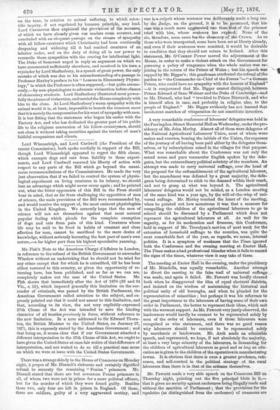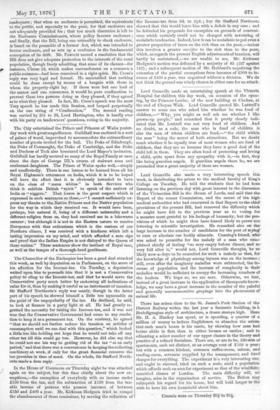Mr. Fawcett made a very able speech on the Commons
Bill on Thursday night, pointing out the five principal blots in it,— that it gives no security against enclosures being illegally made and without the sanction of Parliament ; that the provisions for the regulation (as distinguished from the enclosure) of commons are
inadeouate ; that when an enclosure is permitted, the equivalents to the public, and especially to the poor, for that enclosure are not adequately provided for ; that too much discretion is left to the Enclosure Commissioners, whose policy favours enclosure ; and finally, that the Bill, being one ostensibly to check enclosure, is based on the preamble of a former Act, which was intended to favour enclosure, and so sets up a confusion in the fundamental conception of its drift. Mr. Fawcett moved a resolution that the Bill does not give adequate protection to the interests of the rural population, though freely admitting that some of its clauses—for instance, Clause 22, which makes encroachment on a common a public nuisance—had been conceived in a right spirit. Mr. Cross's reply was very legal and formal. He maintained that nothing could be done except by means of a bargain with those in whom the property-right lay. If there were but one lord of the manor and one commoner, it would be pure confiscation to prevent these two persons doing as they pleased, if they agreed as to what they pleased. In fact, Mr. Cross's speech was the most Tory speech he has made this Session, and harped perpetually on the one string of "Confiscation." The second reading was carried by 234 to 98, Lord Hartington, who is hardly ever with his party on landowners' questions, voting in the majority.































 Previous page
Previous page